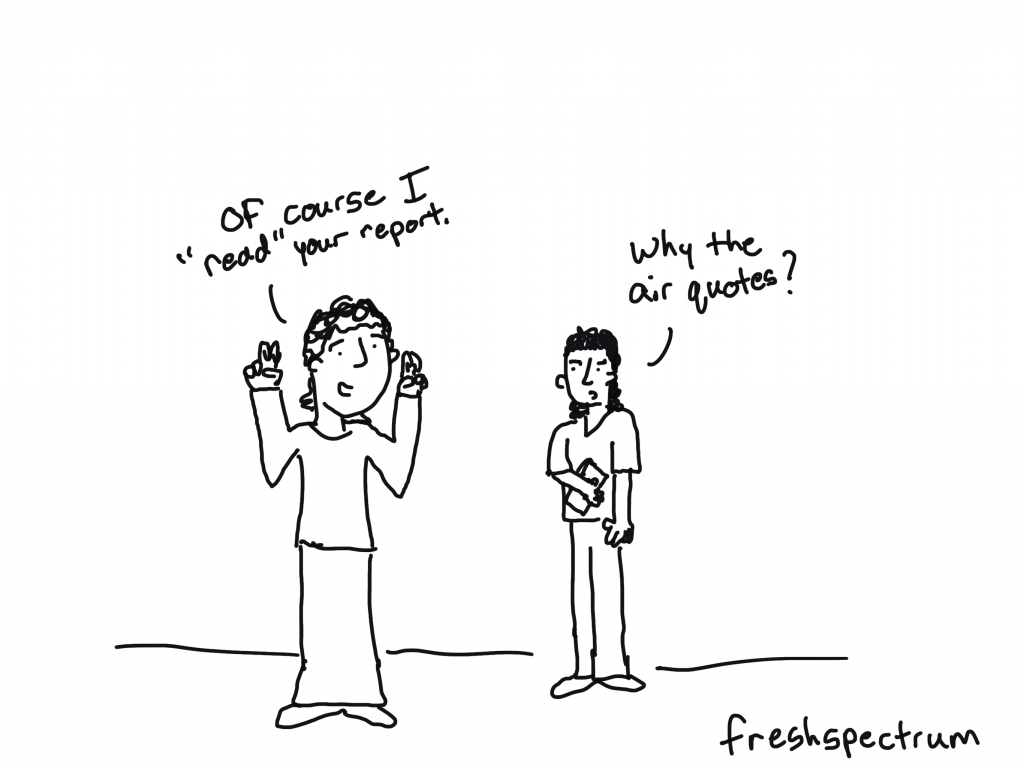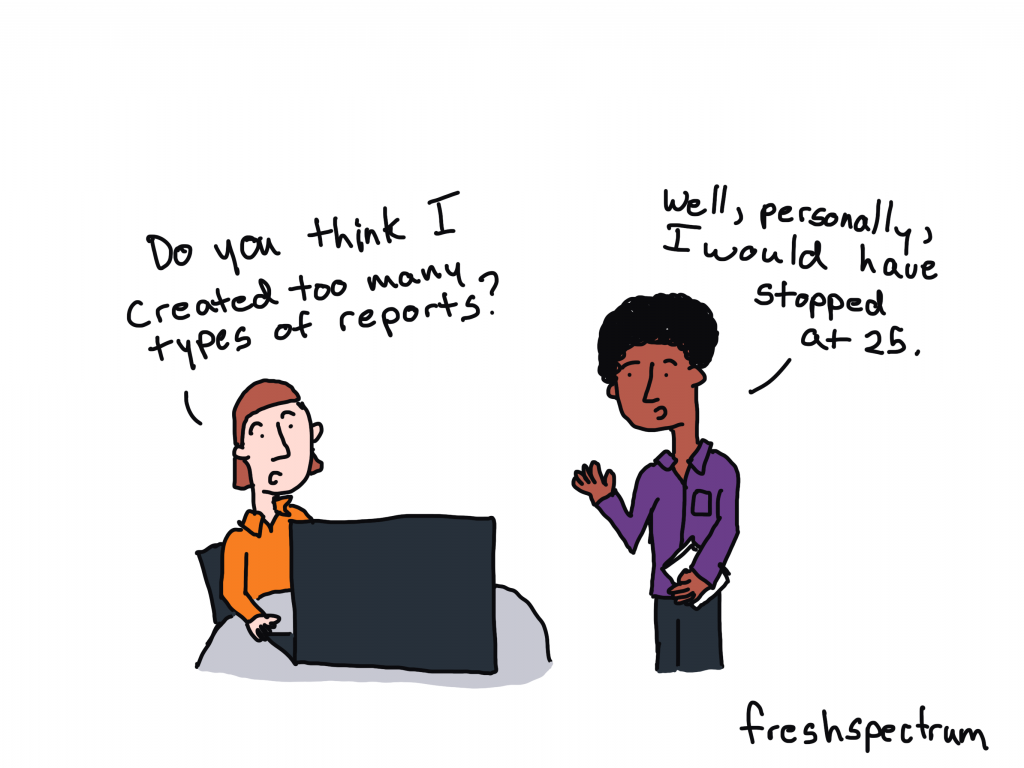This is an Eval Central archive copy, find the original at freshspectrum.com.
Do you know why so many research and evaluation reports are super long and boring? I have a theory.

One nice thing about putting all of your ideas into a book is that it makes it easier to chat about those ideas with others. And I’ve had the opportunity to participate in a bunch of chats about The Reporting Revolution.
A point that I make in the book is that it’s probably better to have 10 pretty good reports that reach 10 unique audience needs than to have 1 amazing report. I also talk a lot about different types of micro-reports (i.e. social media featured images, infographics, slidedocs, etc.).
This gets a little pushback, but not because I’m suggesting creating lots of little reports. Instead, it’s the idea that we shouldn’t create one big report. Because we need that report to do other things.
For example, we need the report as a historical record of the work that we’ve completed. Something that walks systematically through the methods we’ve used, talks about how we approached our analysis, and goes over any complications or considerations. Not because there is someone who specifically needs that information right now, but because somebody might need that information at some point in the future.

Reporting versus Documentation
My love of little reports does not mean that I am against long reports. I have even written in defense of long 200 page reports.
Not only do long reports provide a historical record of our work, but they also help us to think through our work and let us write non-comprehensive short reports without the fear of missing something.
But merited or not, are these long brain dumps really reports?
Yes, we call them reports. But we don’t really create these things for people. We create these things to document our work.
We report for audiences.

What would happen if you started calling your longer reports documentation?
If you give up the idea that you’re actually writing for an audience, the whole “formerly known as long report” thing gets easier to write. Because you’re just capturing your work.
And if you stop treating that documentation as the only way you report your work, you can start creating real reports. The ones designed to serve your audiences.